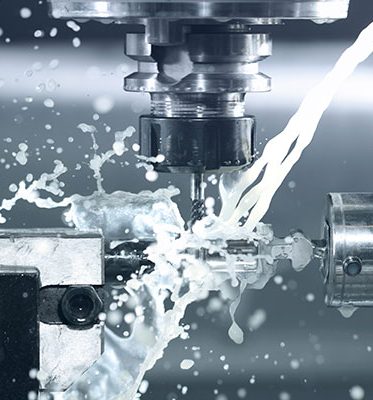Ion Metal performs manufacturing activities thru its in-house facilities. The specimens that are subject to testing and examination are fabricated at its Nadcap accredited machining shop, as well. These facilities are also utilized for conventional and non-conventional machining work required for R&D and industrial projects.


In addition to machining, Ion Metal has certain selected capabilities on fusion and solid state welding, wire-arc additive manufacturing and heat treatment processes. Ion provides information on welding and additive manufacturing technologies to its clients when they do not have a clear overview of the impact and possibilities or have the knowledge or mindset to find appropriate solutions that solves their problems. Ion has certified welding engineers, who has expertise on weldability and manufacturability of conventional and exotic alloys.
Next generation structural and enclosing assemblies demand for hybrid structures composed of materials with high specific-strength that should be preserved at extreme service conditions. Such hybrid structures offer structural performance, which combines the superior properties of each constituent material, but also bring the similar and dissimilar joining to the agenda where an engineering judgement and/or a customised procedure is required. Structural reliability is of paramount importance in the high demanding service conditions of the propulsion and structural applications in aerospace industry. Besides having comprehensive experience on hybrid Laser and plasma arc welding technologies, Ion Metal has recently focused particularly on solid-state welding technologies and graded transition (functionally graded) joints that are additively manufactured.
In order to make a difference in additive manufacturing operations, Ion has developed a wire-arc additive manufacturing technique in the direction of synthesizing alloys by using two different feedstock alloys in a way that provides superior properties in specific regions of the manufactured part. A hybrid plasma-metal arc welding torch was adapted by Ion engineers for wire arc additive manufacturing with the capability to build functionally graded metals. Unlike conventional two-wire feedstock WAAM technique that exploits the unidirectional surface stress with direct current co-polarity at droplet/medium interface for mixing two wires, the hybrid plasma-metal arc technique provided smoother compositional grading due to the synergistically amplified Marangoni convection, which is induced by two arcs with different polarities. The spatial variations of chemical composition and metallographic observations were supported by mechanical tests in selected metallic alloys, including high entropy alloys (HEA).


Ion Metal is also engaged in research endeavors focused on advancing real-time and adaptable process control systems within international collaborative R&D initiatives. These efforts involve integrating such systems into manufacturing processes and generating a digital replica of the product using data collected throughout the production process.



